Posts by Breakstone, White & Gluck
Contaminated Steroid Injections Trigger Outbreak in 23 States, 5 Deaths
Five people have died and at least 35 have fallen ill after being injected with a steroid which was contaminated with fungus from a Massachusetts compounding pharmacy.
The steroid was shipped to 75 health centers in 23 states, not including Massachusetts, according to media reports. Patients treated with the steroid in six states have fallen ill and died from aspergillus meningitis. Symptoms of this rare infection include headache fever, nausea and pain at the injection site.
The steroid was produced at New England Compounding Center of Framingham, Massachusetts. The company first recalled three lots of methylprednisolone acetate last week. This week, the Food and Drug Administration (FDA) has expanded the recall to include all injectable spinal drugs made by New England Compounding Center. The FDA is further urging health care providers to discard all products from the company as a precaution.
The 35 people who were stricken ill were treated with epidural injections of methylprednisolone acetate for lower back pain between July and September. The infected patients are from Tennessee, Virginia, Maryland, Florida, North Carolina and Indiana. Patients are still being notified. No Massachusetts facilities received the defective steroid injections, but there were shipments within New England to health care providers in Connecticut, Rhode Island and New Hampshire.
Nine Massachusetts health facilities did receive methylprednisolone acetate from other lots made by New England Compounding Center, but no cases of fungus meningitis have been reported.
New England Compounding Center has voluntarily given up its state license and ceased operation. Investigators this week found a contaminated sealed vial of steroid at the company, the FDA reported, and testing is being performed to determine if it is the same fungus as the outbreak.
The Boston Globe reported a state official said the Massachusetts Board of Registration in Pharmacy received complaints about the company in 2002 and 2003. The board worked with the company to improve conditions, but the official did not share details. The board is still investigating another complaint received in March about eye medications.
In 2006, the FDA sent the company a letter stating concerns including its splitting and repacking of the injectable colorectal cancer drug Avastin.
The case shines a light on regulations regarding pharmacies which prepare custom medications, often for patients who have allergies to other medications or for treatments which are no longer commercially available.
New England Compounding Center was not accredited by the Pharmacy Compounding Accreditation Board, which conducts a site visit and review of pharmacy every three years. The accreditation is voluntary.
Related:
5 deaths now tied to rare fungal meningitis possibly contracted from steroids prepared by Massachusetts pharmacy, Boston Globe.
Hundreds seen at risk in meningitis outbreak, Associated Press.
Massachusetts Board of Registration in Pharmacy.
Recalled Bicycles Have Defective Fork
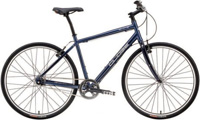 A bicycle distributor has recalled about 12,000 high-end bicycles because the front forks can break, posing a fall and injury hazard.
A bicycle distributor has recalled about 12,000 high-end bicycles because the front forks can break, posing a fall and injury hazard.
Specialized Bicycle Components, Inc. of Morgan Hill, California has recalled the bikes in cooperation with the Consumer Product Safety Commission (CPSC). The recalled bikes were manufactured by Kinesis of China. Specialized has received four reports of the front forks breaking. The front fork is the part of a bike which holds the front wheel up and allows the rider to steer. The four reports involved facial fractures, head and shoulder injuries and cuts.
The product recall spans a number of 2008 and 2009 men’s and women’s Global model bicycles. The models come in multiple colors and were sold nationwide at authorized Specialized retailers from July 2007 to July 2012. They sold for between $550 and $1,100. The recalled bikes include:
- Globe Elite
- Gloe Sport
- Globe Sport Disc
- Globe Centrum Comp
- Globe Centrum Elite
- Globe City 6
- Globe Vienna 3
- Globe Vienna 3 Disc
- Globe Vienna 4
- Globe Vienna Deluxe 3
- Globe Vienna Deluxe 4
- Globe Vienna Deluxe 5
- Globe Vienna Deluxe 6
Consumers are advised to immediately stop using the defective bikes and return them to an authorized Specialized retailer for a free installation of a free replacement fork.
Related:
- Specialized Bicycle Components Recalls Bicycles Due to Fall and Injury Hazards, CPSC.
Pedestrian Accidents Surge in September
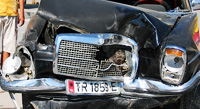 Two car accidents killed pedestrians this weekend in Lowell and Townsend, the latest in a series of injuries and deaths in the past month.
Two car accidents killed pedestrians this weekend in Lowell and Townsend, the latest in a series of injuries and deaths in the past month.
A 50-year-old Lowell man walking on West Sixth Street was killed early Sunday morning in a hit-and-run pedestrian accident. The previous day, a 57-year-old Townsend man was killed on Wallace Hill Road in that community. On Sept. 9, a 38-year-old man walking with his girlfriend’s young daughter was killed when he was struck by a Dodge Ram pick-up truck in Whitman. The 4-year-old was also hit and survived with serious injuries.
In the past month, pedestrians have also suffered serious injuries in car collisions in Northborough, Salem and Woburn.
When a pedestrian accident occurs, police often respond by increasing traffic monitoring as a signal to drivers that they are watching. When drivers take that message and pedestrians follow the rules of the road, the roads become safer for everyone. The attorneys at Breakstone, White & Gluck of Boston have over 85 years of combined experience handling car accident and pedestrian accident cases. We offer you these tips to stay safe on the road:
Tips for Pedestrians
Sidewalks. Use sidewalks as much as possible.
Understand the law. You have the most protection in crosswalks and intersections with “Walk” signals. Use these as much as possible.
Be patient. Resist the urge to cross the street before a “Walk” signal lights.
Pay attention. Do not talk on your cell phone or text while waiting to cross the street or when walking through traffic.
Wear bright colors. When walking or running at night or in the early morning, consider wearing a neon vest and carrying a flashlight.
Time of day. Be aware of when pedestrian accidents often occur. On weekdays, they are most likely to occur between 4 p.m. and midnight, according to the National Highway Traffic Safety Administration (NHTSA). On weekends, the majority occur between 4 p.m. and 4 a.m.
Shopping areas. Pedestrian accidents can happen in parking lots at shopping areas and schools as well as on streets. Walk slowly and watch for cars pulling out of spaces.
Eye contact. When you are uncertain about what a driver is planning, attempt to make eye contact.
Tips for Drivers
Crosswalks. Pedestrian have the right of way. They have the most protection in crosswalks and intersections with “Walk” signals and green lights. You must stop before the crosswalk and not on it, even if no one is crossing it.
Slow down. Slowing your speed and looking out for pedestrians and bicyclists are the best way to avoid a car accident.
No texting while driving. This is against the law in Massachusetts and reduces your ability to react to other drivers, bicyclists and pedestrians.
Avoid other distractions. Limit distractions, such as talking on your cell phone, grooming and extensive use of the GPS and maps.
Change your travel route. Ask yourself if you can change your travel plans to reduce encounters with pedestrians. Maybe you can avoid school zones when classes are in session or dark roads when runners and walkers may be traveling.
School zones and buses. Drive slowly. In Massachusetts, the speed limit for school zones is 20 miles per hour. Remember you are required to stay 100 feet behind a stopped bus and cars are not allowed to pass other cars stopped for a school bus.
Read More
Child Passenger Safety Week: a Reminder Car Seats are Critical to Protecting Children
If you have children, your car probably has at least one car seat buckled in at all times. But when was the last time you checked its positioning or if your child is using the right model?
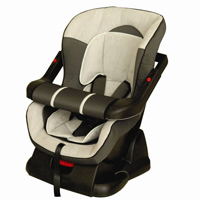
A good answer is right now. The National Highway Traffic Safety Administration (NHTSA) is observing Child Passenger Safety Week from Sept. 16 – 22. Sept. 22 is National Seat Check Saturday. Parents can click here and find a full list of sites throughout Massachusetts offering free car seat checks by certified and trained professionals.
The right car seat and positioning is critical because motor vehicle crashes are one of the leading causes of death among children ages 3 to 14. A car accident can come suddenly without warning and a child passenger safety seat is essential to keeping young passengers safe.
Child passenger seats are generally divided into four categories: infant carrier seats, rear-facing seats, forward-facing seats and booster seats.
All 50 states and the District of Columbia require child safety seats and all but two – Florida and South Dakota – require booster seats or similar devices for children who have outgrown safety seats.
The Massachusetts Child Passenger Safety Law requires all children riding in passenger motor vehicles be in a federally-approved child passenger restraint which is properly fastened and secured until they are 8 years old or over 57 inches tall. The number of children increased substantially with the passage of the Booster Seat Bill in 2008.
About Child Passenger Seats
Infant carrier seat. These are for children up to 1 year of age who weigh 20 pounds. The height limit is up to 26 pounds.
Rear-facing convertible seat. These are for children who are 6 months to 1+ year of age, who weigh under 30 pounds.
Forward-facing seat. These are for children over 1 year of age who weigh more than 20 pounds and under 40 pounds.
Booster seat. These are for children age 4 to 8. When students turn 8 and stand taller than 4 feet 9 inches, they can transition to a back seat belt. It is recommended children travel in the backseat wearing a seatbelt up until the age of 13.
Related:
- Enhanced Child Passenger Safety Law, Commonwealth of Massachusetts.
- State Child Passenger Safety Laws, Governors Highway Safety Association.
Defective Blind Xpress Window Blinds Recalled
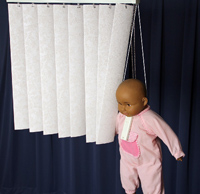 The case of a young Michigan girl strangled to death in a vertical blind has prompted the recall of about 139,000 custom-made vertical window blinds and 315,000 horizontal products.
The case of a young Michigan girl strangled to death in a vertical blind has prompted the recall of about 139,000 custom-made vertical window blinds and 315,000 horizontal products.
The Consumer Product Safety Commission (CPSC), in cooperation with Blind Xpress of Livonia, Michigan, announced the recall on September 6. The two-year-old girl from Commerce Township was reportedly strangled in the hanging loop of a Blind Xpress vertical blind cord in 2009.
The CPSC is recalling the defective window blinds because the design makes it easy for children to become entangled in the cord loop. Part of the problem is the custom vertical blind cords do not have a cord-tensioning device that attaches to the wall or floor. The horizontal blinds do not have inner cord stop devices.
The recall involves Blind Xpress blinds sold in specialty stores in Michigan, Ohio and Indiana from January 1995 through December 2011. The defective blinds were manufactured in the United States.
The CPSC urges consumers to immediately stop using the window blinds and contact the Window Covering Safety Council for a free repair kit. The toll-free number is 800-506-4636.
According to CPSC data, were 147 incidents involving children being injured or killed from 2004 to 2010 – or 21 per year.
The CPSC, industry and safety groups have made several efforts over the past couple decades, including recall/retrofit programs. The major push came in 2009, when after the death of 16 children, the industry recalled 55 million Roman Shades with exposed inner cords on the back of the shades.
The Parents for Windows Blind Safety, a non-profit organization which advocates for more stringent regulations, says the hazard lies with cords which stretch more than 7 1/4 inches. It proposes the window blind industry sell cordless blinds or those with inaccessible cords.
Related:
- Death of Child Prompts Recall of Window Blinds by Blind Xpress, Consumer Product Safety Commission.
- The History of Corded Window Covering Recalls, Parents for Window Blind Safety.
DePuy Hip Implant Cases Settled for $600,000
Johnson & Johnson has agreed to pay about $600,000 to resolve three product liability cases involving its DePuy hip implants, which were recalled in 2010 after hundreds of patient complaints and a study emerged revealing a substantial device failure rate.
The New Jersey-based company settled the cases of three women who had filed claims in a Las Vegas court. All three women had required a second hip revision surgery to treat and correct their pain. Each will receive about $200,000. The cases had been scheduled for trial Dec. 3.
The next three lawsuits involving defective DePuy hip implants are set for January in a Maryland state court.
In August 2010, Johnson & Johnson’s DePuy unit recalled 93,000 of its ASR hip implants globally and 37,000 in the United States. The recall was announced alongside results of a study from a UK joint replacement registry, which showed 12 percent of patients required a second revision surgery within five years. The Food and Drug Administration (FDA) also reported it had received about 400 complaints from patients in the two years prior.
Since the DePuy hip recall, more than 8,000 patients across the country have filed lawsuits against the medical device maker, alleging the ASR hips are defective. About 6,000 of these have filed in federal court.
Patients claim the DePuy metal-on-metal hip implants are defective, saying they caused friction between the metallic ball and socket components. The recalled DePuy hip implant can wear down and produce metallic particles in patients’ bloodstreams, along with pain, joint dislocations, infections and bone fractures.
Johnson & Johnson said it has spent about $800 million on the hip implant recall.
Related:
- J&J said to pay $600,000 to settle first suits over hips, Bloomberg Business Week.
- DePuy hip implant recall leads insurers to seek recovery, Massachusetts Injury Lawyer Blog.
Car Accident Study: Drivers Who Use Cell Phones May Show Other Risky Behaviors
 A new study raises the question of whether driving while using a cell phone is the safety risk or a symptom of a larger problem: an aggressive driver with dangerous habits.
A new study raises the question of whether driving while using a cell phone is the safety risk or a symptom of a larger problem: an aggressive driver with dangerous habits.
Researchers at the Massachusetts Institute of Technology (MIT) found drivers who engaged in frequent cell phone use are higher-risk, even when their phone is out of use. The researchers studied the behavior of 108 Greater Boston drivers. About half admitted to frequent cell phone use while the others said they rarely talked behind the wheel.
The frequent cell phone users tended to drive faster, changed lanes more often and spent more time in the far-left lane. They were also more likely to accelerate rapidly and slam on the breaks.
The data supports the focus on cell phone use: The National Safety Council (NSC) estimates about 1 of 5 car accidents involve drivers who were on the phone.
But researchers say even as the number of cell phones has increased nationwide, the number of car accidents has not, leading to one possible conclusion that drivers who talk behind the wheel are also engaging in other risky behaviors.
Massachusetts is among 39 states which have banned texting while driving. Ten other states ban talking on the phone unless a driver uses a hands-free device. Recently in Massachusetts, lawmakers have considered full cell phone bans to reduce car crashes.
Researchers are investigating whether the answer lies beyond new laws. They are considering retraining programs for drivers which discourage cell phone use and provides warning about other bad habits. Focus is also on auto collision warning systems or sensors which identify when cars cross a lane.
Related:
- It’s not the cell phone, but the driver that’s high risk, The Boston Globe.
- Texting while driving accidents, Breakstone, White & Gluck.
- Distraction.gov.
Defective Drug Warning: Reumofan Diet Supplements
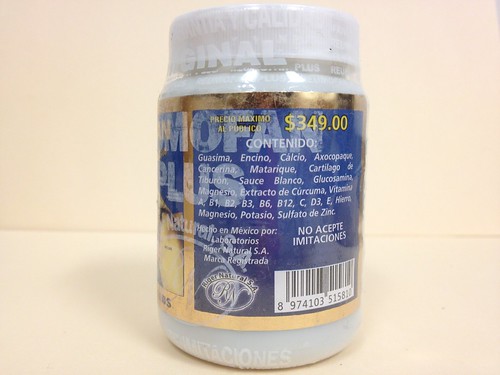 Those who take so-called “natural dietary supplements” want to listen to the Food and Drug Administration’s (FDA) latest alert on Reumofan Plus and Reumofan Plus Premium, which have now been linked to cases of death and stroke.
Those who take so-called “natural dietary supplements” want to listen to the Food and Drug Administration’s (FDA) latest alert on Reumofan Plus and Reumofan Plus Premium, which have now been linked to cases of death and stroke.
“Consumers who are currently taking Reumofan Plus or Reumofan Plus Premium, or who have recently stopped taking it, should immediately consult a health care professional,” said Elizabeth Miller, Pharm.D., acting director of FDA’s Division of Non-Prescription Drugs and Health Fraud.
The FDA issued its first alert on the dangers of Reumofan Plus on June 1, stating the drug had several active pharmaceutical ingredients not listed on the label. This week, the agency issued an updated alert for both the drug and Reumofan Plus Premium, saying it had since received reports of death, stroke and these symptoms:
- Severe bleeding in the gastrointestinal tract
- Dizziness
- Insomnia
- High blood sugar levels
- Problems with liver and kidney functions
- Corticosteroid withdrawal syndrome
These defective products are marketed as natural dietary supplements which treat arthritis, muscle pain, osteoporosis and bone cancer. If not properly supervised by a medical professional, those who stop taking the supplements can face serious withdrawal symptoms.
The defective drugs may contain corticosteroids and abrupt discontinuation can supress the adrenal glands, which regulate a number of hormone and body functions. Users could experience fatigue, low blood sugar levels, fainting and other symptoms.
The Reumofan products are manufactured in Mexico by Riger Naturals and sold on the Internet, flea markets and some retail outlets. The Mexican Ministry of Health has also issued a health warning to its citizens and ordered Riger Naturals to recall the products.
FDA testing of Reumofan Plus and Reumofan Plus Premium show they contain two ingredients which require prescriptions: diclofenac sodium and methocarbamol. Reumofan Plus also contained dexamethason, a type of corticosteroid.
The FDA offers consumers these tips for avoiding defective and dangerous drugs:
- Be wary of off-the-counter products which only have prescription counterparts.
- Be cautious when a label has a foreign language.
- Be aware that so-called “natural dietary supplements” are not subject to the same FDA pre-market review as prescription drugs and some over-the-counter drugs.
Related:
- Reumofan Products Pose Risk to Consumers, Food and Drug Administration.
- Dietary Supplements, Food and Drug Administration.
Recalled Heart Device and Similar Model Under FDA Watch
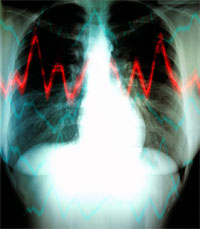 The Food and Drug Administration (FDA) has ordered St. Jude’s Medical to expand studies into Durata defibrillator leads, saying the heart devices are sufficiently similar to Riata leads, which were recalled last year. The agency is also seeking new data on Riata.
The Food and Drug Administration (FDA) has ordered St. Jude’s Medical to expand studies into Durata defibrillator leads, saying the heart devices are sufficiently similar to Riata leads, which were recalled last year. The agency is also seeking new data on Riata.
Defibrillators are implanted in patients with abnormal heart rhythms to regulate the heart beat. The medical devices are connected to the heart with leads. Riata was recalled because in some cases, wires were breaking through the insulation, which can potentially lead to a life-threatening abnormal heart rhythm.
A recent St. Jude study of 700 Riata patients found the defective wire broke through the insulation in about 19 percent of cases. A study led by a Minneapolis Heart Institute cardiologist has linked Riata leads to 20 deaths.
St. Jude, of St. Paul, Minnesota, pulled the defective Riata leads off the market in December 2010 and the FDA issued a medical device recall in late 2011. A 2011 count found 79,000 patients were still implanted with the Riata leads.
Responding to the FDA order, St. Jude said it is already collecting data on both Riata and Durata. The company stated the medical devices are different in design and a new coating meant to protect the insulation.
The FDA’s orders include routine X-rays for patients enrolled in post-market Durata studies to identify any insulation problems. St. Jude must also perform X-rays in a three-year post-market study on the defective Riata leads. The goal is to detect extruded leads which are floating loose in the heart.
Surgery to remove extruded leads can be dangerous. St. Jude says many patients live with the loose wires and continue to function normally. The FDA has advised doctors to closely monitor patients.
Related:
- FDA Orders Review of Heart Devices, The Wall Street Journal.
- Riata patients should get X-rays, FDA says, Star Tribune.
- Doctors grapple with FDA advice for troubled heart wire, Fox News.com.
Dog Attacks: Pit Bull Ordinances Nullified Under New State Law
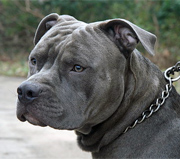 State lawmakers have handed cities and towns with pit bull ordinances a set back after passing a new animal control law which says no regulation may be specific to breed.
State lawmakers have handed cities and towns with pit bull ordinances a set back after passing a new animal control law which says no regulation may be specific to breed.
Boston, Lowell and Worcester are among the Massachusetts communities which have implemented pit bull ordinances in the past 10 years. None of the communities will be grandfathered under the legislation, “An Act Further Regulating Animal Control.” Gov. Deval Patrick signed the bill into law Aug. 2 and it takes effect Oct. 31.
Boston enacted its pit bull ordinance in 2004 and it serves as the model for many other local communities seeking to reduce dog bites and attacks. The ordinance states dogs must be muzzled outside the owner’s private home, apartment and car. All dogs in Boston are required to be leashed off their owner’s property.
Under the pit bull ordinance, the owner must post a sign alerting the public and guests that there is a pit bull on the premises. Additionally, a dog owner may not register or keep more than two pit bulls.
If the pit bull owner is renting an apartment, the landlord must sign off written permission, which must then be presented to the city’s Animal Control Officer.
Worcester and Lowell have similar ordinances to prevent dog bites and attacks, but they also require pit bulls be spayed and neutered. Lowell’s ordinance began in July 2011, according to the Lowell Sun. Local law enforcement is still assessing the impact. But one visible change is more pit bull owners are registering their animals with the city. In the last six months of 2011, 30 pit bulls were registered with the city, according to the city clerk. In 2012, 56 pit bulls have been registered.
Worcester officials report the opposite since their ordinance took effect on April 1, 2011, according to the Telegram & Gazette. The Worcester city clerk’s office reports in 2012, there were 221 licensed pit bulls in the city and an estimated 275 unlicensed. The number of registered pit bulls now stands at fewer than 70.
The city is still awaiting figures on recent dog attacks. But it implemented the law after a surge in dog attacks and figures which showed more than half involved pit bull attacks.
From Sept. 30, 2008 to Sept. 30, 2009, the city received 55 complaints of dog attacks or fear of a dog attack; 29 involved pit bulls. Police department figures further showed pit bulls were involved in 25 percent of the city’s dog bites over a two-year period.
The new state law also includes other changes to animal control regulations, including providing standards for how police chiefs handle dogs deemed dangerous and establishes a Homeless Animal Prevention and Care Fund, which will be funded by voluntary donations on state tax returns.
Related:
Worcester pit bull regulations nullified, Telegram & Gazette.
New state law could maul Lowell’s pit-bull ordinance, Lowell Sun.
Bill S.2192, An Act further regulating animal control.
Read More

